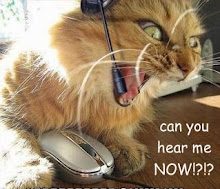Newspapers, or “paper news”, are facing difficult times today, with the competition from the “instant news” of the internet, e-mail “push” news-bits, and the ubiquitous 24 hr radio & TV newscasts. If the only raison d’être of newspapers were instant news, they have all ready lost that battle. However, by providing in-dept analysis of news, trends and backgrounds, reflecting society and politics, and making a social statement, paper news /newspapers still have a valuable contribution to make.
The way I see it, there are a couple of major issues here: “old timers” like me, brought up on papers, still have a strong preference for the tactile paper news format, though I am getting most of my new “news” from the internet and the radio. My computer cannot compete when it comes to in-depth reading and the convenience of having a newspaper or magazine on my lap in my easy chair and with my feet on the coffee table. Ditto for books – I doubt I would ever read a book in electronic format, or keep a book-CD in my book case. The younger folks are more attuned to the electronic medium, and somewhat addicted to the multi-tasking, instant communications of the electronic media. The biggest challenge for traditional newspapers in the future will be to captivate and keep this new generation of potential readers, and to remain relevant to the needs of the more serious minded public. The tabloid and Harlequin romance readers will have their own niche.
The question raised by Mr. Honderich is a valid one: who will pay the piper? After all, discerning and thoughtful readers are not in a majority, and newspapers need funds to keep publishing and pay reporters and contributors. He brings up the example of the CBC and BBC. Newspapers have resisted government support in the name of press freedom, and a government sponsored press could be subject to political interference. But, there are ways around that also. If all established newspapers were to be supported by public funds, either by a tax allowance or direct government support, this could be done at arms-length politically, and not necessarily become a partisan issue.
As Winston Churchill said about democracy, it’s not the best, but the alternatives are so much worse. We need to take a serious look at this issue, before it is too late, and here the newspapers themselves should be in the van.
Subscribe to:
Post Comments (Atom)


No comments:
Post a Comment